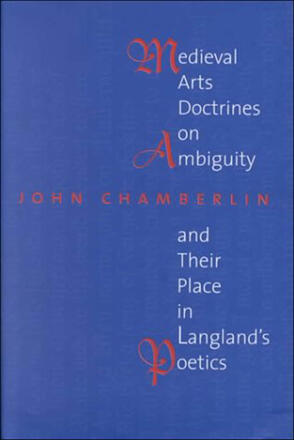
Medieval Arts Doctrines on Ambiguity and Their Places in Langland's Poetics
Description
Chamberlin's focal point for this synthesis is the concept of ambiguity, which has played an important role in the liberal arts tradition and in medieval discourses regarding reading and preaching - discourses that are fundamental to Langland's poetic ways with words. His work takes its place among other recent attempts to retrieve medieval literary theory, making it possible for it to inform the reading of medieval literature, but places this theory within a particularly wide context. Chamberlin claims that the excess of meaning ambiguity gives language is at least as important to the understanding of Piers Plowman and other medieval texts as is allegory. He deals with lexical ambiguity and the ambiguity of words-as-words - in which words themselves are taken as objects - offering linguistic, philosophical, and historical perspectives on these subjects. How ambiguity works in Langland's poetry is explained in close analysis of a number of passages from the poem. Chamberlin's overview of the historical development of the concept of ambiguity pays special attention to the doctrines of Augustine and the twelfth-century masters. He elucidates these by reference to similar ideas from Romantic and twentieth-century theorists, providing a coherent view of language that stands as an alternative to structuralist and post-structuralist views.